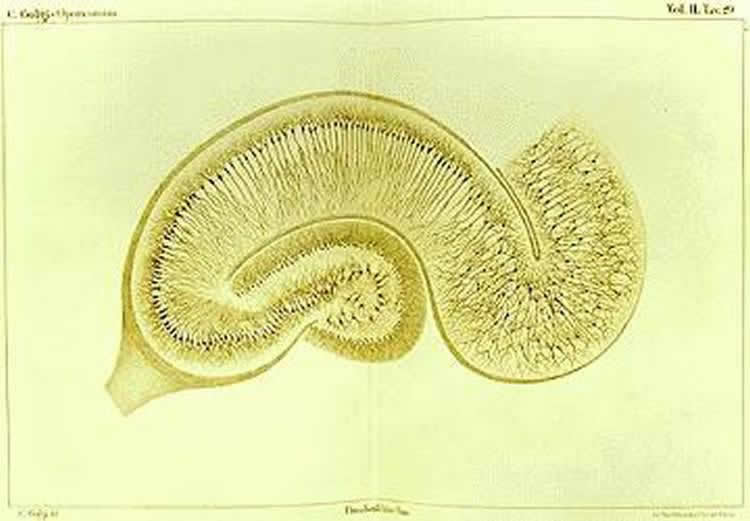Summary: A new study reports those with alcohol addiction who also smoke may be at an increased risk of neural damage. The study revealed higher levels of oxidative stress in the hippocampus, and a a decrease in neurotrophic factor in the striatum and frontal cortex in rats exposed to both alcohol and tobacco.
Source: ACS.
Along with many other harmful health consequences, smoking tobacco causes chemical changes, oxidative stress and inflammation in the brain. Excessive alcohol use can have similar effects. Surprisingly, however, very few studies have examined the combined impact of smoking and alcohol on the brain. Now, researchers reporting in ACS Chemical Neuroscience have shown that in rats, the joint use of tobacco and alcohol could increase neural damage in particular brain regions.
According to the National Institute on Alcohol Abuse and Alcoholism, many people who smoke tobacco also drink alcohol excessively, and vice versa. Therefore, studying the combined effects of the two drugs on the central nervous system could yield valuable insights. But most previous studies have examined the consequences of one or the other in isolation. That’s why Alana Hansen and colleagues wanted to find out how drinking and smoking together affect regions of the rat brain involved in drug addiction.

The researchers treated rats with alcohol, tobacco smoke or both twice a day for 28 days and then compared their brains with control animals that didn’t receive either substance. They found that the combined alcohol and smoking treatment increased the level of reactive oxygen species in the hippocampus compared with control animals or rats given tobacco smoke alone. In all of the brain areas studied, combined alcohol and smoking increased the levels of specific pro-inflammatory cytokines more than either treatment alone. And in the striatum and frontal cortex, rats with both treatments showed lower levels of brain-derived neurotrophic factor, a growth factor that helps existing neurons survive and stimulates the growth of new ones. These results suggest that alcoholics who smoke could be at additional risk for neural damage, the researchers say.
Funding: The authors acknowledge funding from the Coordination of Improvement of Higher Education Personnel (CAPES), the National Council for Scientific and Technological Development (CNPq) and the Federal University of Rio Grande do Sul (UFRGS).
Source: Katie Cottingham – ACS
Publisher: Organized by NeuroscienceNews.com.
Image Source: NeuroscienceNews.com image is in the public domain.
Original Research: Abstract for “Combined Exposure to Alcohol and Tobacco Smoke Changes Oxidative, Inflammatory, and Neurotrophic Parameters in Different Areas of the Brains of Rats” by Dayane A. Quinteros, Alana Witt Hansen, Bruna Bellaver, Larissa D. Bobermin, Rianne R. Pulcinelli, Solange Bandiera, Greice Caletti, Paula E. R. Bitencourt, André Quincozes-Santos, and Rosane Gomez in ACS Chemical Neuroscience. Published January 17 2019.
doi:10.1021/acschemneuro.8b00412
[cbtabs][cbtab title=”MLA”]ACS “Smoking and Alcohol: Double Trouble for the Brain.” NeuroscienceNews. NeuroscienceNews, 27 February 2019.
<https://neurosciencenews.com/smoking-alcohol-inflammation-10829/>.[/cbtab][cbtab title=”APA”]ACS (2019, February 27). Smoking and Alcohol: Double Trouble for the Brain. NeuroscienceNews. Retrieved February 27, 2019 from https://neurosciencenews.com/smoking-alcohol-inflammation-10829/[/cbtab][cbtab title=”Chicago”]ACS “Smoking and Alcohol: Double Trouble for the Brain.” https://neurosciencenews.com/smoking-alcohol-inflammation-10829/ (accessed February 27, 2019).[/cbtab][/cbtabs]
Abstract
Combined Exposure to Alcohol and Tobacco Smoke Changes Oxidative, Inflammatory, and Neurotrophic Parameters in Different Areas of the Brains of Rats
Devastating effects of exposure to alcohol and tobacco smoke on health are extensively reported in the literature. However, few studies have attempted to elucidate the consequences of their combined use on the central nervous system. Here we studied the effect of this combined use on some oxidative, inflammatory, and neurotrophic parameters in the hippocampus, striatum, and frontal cortex of rats. Adult Wistar rats were allocated into control (CT), alcohol (AL), tobacco smoke (TB), or combined (ALTB) groups. Rats were exposed to environmental air (CT and AL groups) or to the smoke from six cigarettes (TB and ALTB groups) immediately after tap water (CT and TB) or 2 g of alcohol/kg (AL and ALTB) oral gavage administration, twice a day, for 4 weeks. On day 28, rats were euthanized and areas of the brain were dissected to evaluate some cellular redox parameters, pro-inflammatory cytokine levels, and brain-derived neurotrophic factor (BDNF) levels. A one-way analysis of variance showed that the ALTB combined treatment significantly increased oxidative stress levels in the hippocampus. ALTB also increased interleukin-1β levels in the striatum and frontal cortex and tumoral necrosis factor-α levels in the frontal cortex compared with those of AL, TB, and CT rats. Combined treatment also decreased the BDNF levels in the frontal cortex of rats. Oxidative damage was found, more importantly, in the hippocampus, and inflammatory parameters were extended to all areas of the brain that were studied. Our results showed an interaction between alcohol and tobacco smoke according to the area of the brain, suggesting an additional risk of neural damage in alcoholics who smoke.






